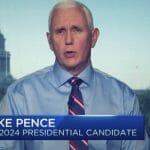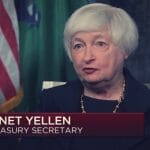
Whitney Tilson the famed value investor, and author of Poor Charlie’s Almanack: The Wit and Wisdom of Charles T. Munger , More Mortgage Meltdown: 6 Ways to Profit in These Bad Times and Value Investing Course: Essential Strategies for Market-beating Returns was recently interviewed on CNBC.
Tilson thinks the penduleum might be swinging in favor of stocks over bonds. Tilson described the current situation as “crazy” in which investors are chasing minuscule yields on long term treasury bonds. I have noted this similar point in previous articles
Tilson commented in a recent email:
s investors fixate on the global forces whipsawing the markets, one fundamental measure of stock-market value, the price/earnings ratio, is shrinking in size and importance.
And the diminution might not stop for a while.
The P/E ratio, thrust into prominence during the 1930s by value investors Benjamin Graham and David Dodd, measures the amount of money investors are paying for a company’s earnings. Typically, companies that post strong earnings growth enjoy richer stock prices and fatter P/E ratios than those that don’t.
But while U.S. companies announced record profits during the second quarter, and beat forecasts by a comfortable 10% margin, on average, the stock market has dropped 5% this month.
The stock market’s average price/earnings ratio, meanwhile, is in free fall, having plunged about 36% during the past year, the largest 12-month decline since 2003. It now stands at about 14.9, compared with 23.1 last September, based on trailing 12-month earnings results. Based on profit expectations over the next 12 months, the P/E ratio has fallen to 12.2 from about 14.5 in May.
Needless to say this is good news for equity investors, and bad news for bond investors.
Tilson is bullish on JNJ which has a strong balance sheet, moat, and recently issued debt for a lower price than the stock’s dividend yield.
Tilson is also bullish on Dell and Berkshire Hathaway. Dell is trading at a 9.3 P/E when cash is subtracted from the market capitalization. Tilson believes that Berkshire Hathaway is at least 20% undervalued even on a conservative basis.











